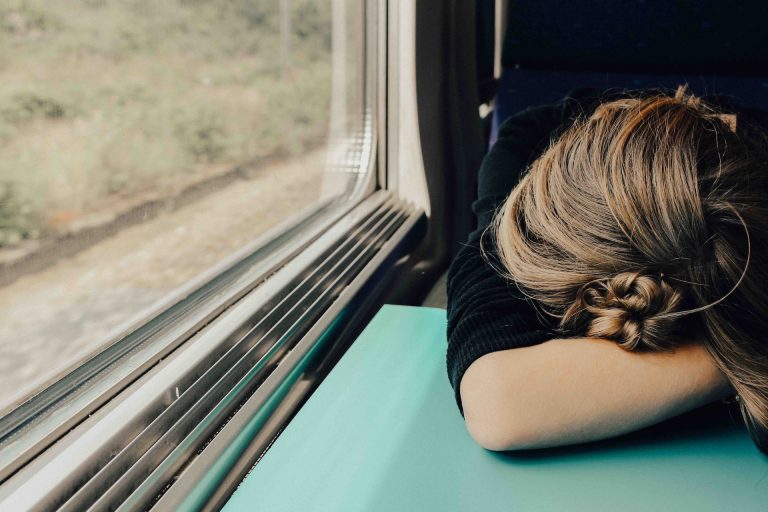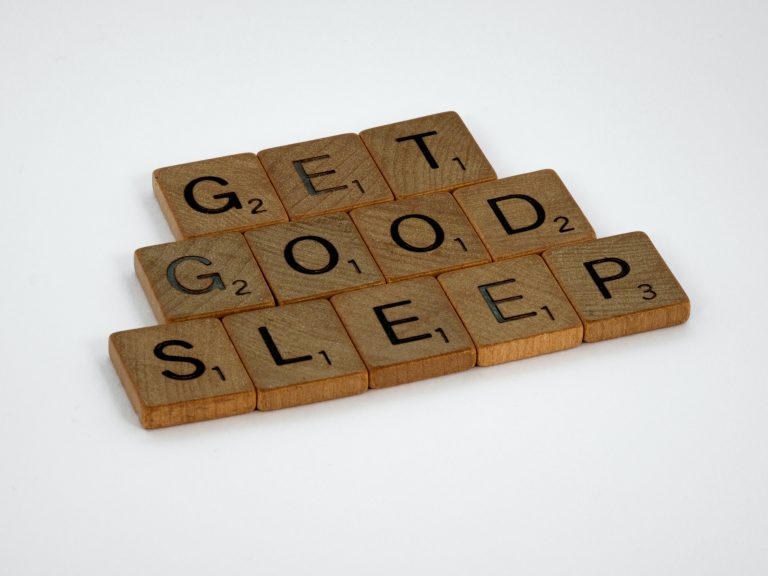The sleep of the French is deteriorating from year to year. The health crisis and then the climate crisis have disrupted the quality and quantity of sleep of the French. According to the National Institute of Sleep and Vigilance, there is even a correlation between sleep disorders and anxiety and depression disorders. That is, the quality of sleep influences the state of mind during the day, and vice versa.
Sleep Disorders Intimately Linked to Symptoms of Anxiety and Depression
On the 23rd International Sleep Day, INSV revealed their 2023 survey. We invite you to view the full results of the sleep survey. Here is what we keep:
- 37% of French people are not satisfied with the quality of their sleep;
- 42% report suffering from at least one sleep disorder: 20% from insomnia, 17% from sleep rhythm disturbances.
- And finally, a fact that we find edifying: the duration of sleep is down compared to previous years; but especially on weekends! The French slept 8h14 per night on weekends in 2019, compared to 7h40 in 2023. That is more than 30 minutes less! The INSV survey relates this result to depressive symptoms.
According to the INSV, a third of respondents to their survey said they were anxious, and 15% of them showed signs of depression. The survey questions on the climate and environmental crisis revealed a certain eco-anxiety, which directly induces insomnia and nightmares to the respondents.
In a 2019 study, Public Health explains sleep decline by :
- more night workers in recent years, who sleep on average 1 hour less than day workers;
- the increasing travel time between home and work, with workers moving further and further away from megalopolises and therefore from their place of work;
- ever more time spent on screens in the evening and at night in addition to the day;
- noise and light pollution in cities.

8 Truths for Good Sleep Hygiene
In order to find a balanced sleep, some habits are to be put in place. Some received ideas disturb even more the sleep of those who wrongly believe in them. Other ideas seem obvious; so obvious that one wonders why they are not systematically applied!
1- Debt vs. advance
You can't make up for a sleep debt by sleeping longer. On the other hand, in anticipation of a tiring period, you can stock up by going to bed 1 to 2 hours earlier than usual for several days.
2- Regularity: the key word
What the body needs ideally is not to catch up on a debt of sleep or to get ahead. No, it's above all to keep a regular rhythm, including on weekends: going to bed and getting up at the same times.
3- Physical activity, yes but...
Doing physical activity during the day helps you sleep well at night. Nevertheless, it is better to ensure that the sports session stops at least 4 hours before bedtime.
4- Alcohol, this false friend
Drinking alcohol in the evening greatly disrupts subsequent sleep, contrary to what one might think.
5- Caffeine: until what time?
It is better to stop consuming exciting drinks such as coffee, tea, coke and energy drinks from 2 p.m.
6- The scourge of screens
In order to put all your chances on your side, stay away from screens 1 to 2 hours before going to bed. Instead, read, listen to music, practice a manual activity (knitting, macramé, Lego®, puzzle, etc.).
7- The bedroom
We haven't mentioned the most important: the bedroom. It must stay cool at night, at a maximum of 18°C, or even 20°C in order to ensure optimal sleep. Try to make it as opaque as possible at night, and as quiet as possible. This conditions your biological clock. A very good habit to adopt is also to go to bed only to sleep. Thus, the body knows little by little that it can fall asleep barely lying down. So we avoid movies, series and games when we are in bed. Even, in case of insomnia the ideal is to get up and leave the room for a while.
8- Light
In the morning, expose yourself to daylight to awaken your biological clock. In winter or in case of bad weather, opt without hesitation for light therapy. Depending on your lifestyle, you can choose a desk lamp or glasses.

Sleep and well-being in the workplace
We've shed some light on the relationship between anxiety and sleep in this article; if we have not mentioned the impact of sleep on work and vice versa, it is totally underlying. As part of a preventive health and well-being strategy in the workplace, learning good sleep hygiene seems elementary. Thus, an employee who takes care of the way he sleeps will have better weapons to feel good at work; in the same way that an employee who feels good at his job can then improve his sleep and therefore his health.
Do you want to implement a health and well-being prevention strategy in your company?
